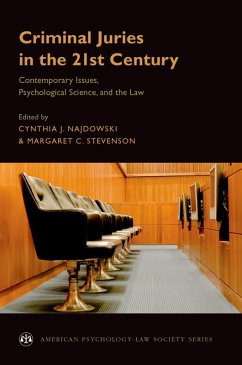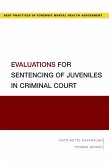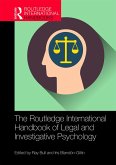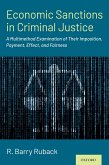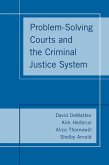The jury is often hailed as one of the most important symbols of American democracy. Yet much has changed since the Sixth Amendment in 1791 first guaranteed all citizens the right to a jury trial in criminal prosecutions. Experts now have a much more nuanced understanding of the psychological implications of being a juror, and advances in technology and neuroscience make the work of rendering a decision in a criminal trial more complicated than ever before.
Criminal Juries in the 21st Century explores the increasingly wide gulf between criminal trial law, procedures, and policy, and what scientific findings have revealed about the human experience of serving as a juror. Readers will contemplate myriad legal issues that arise when jurors decide criminal cases as well as cutting-edge psychological research that can be used to not only understand the performance and experience of the contemporary criminal jury, but also to improve it. Chapter authors grapple with a number of key issues at the intersection of psychology and law, guiding readers to consider everything from the factors that influence the initial selection of the jury to how jurors cope with and reflect on their service after the trial ends. Together the chapters provide a unique view of criminal juries with the goal of increasing awareness of a broad range of current issues in great need of theoretical, empirical, and legal attention.
Criminal Juries in the 21st Century will identify how social science research can inform law and policy relevant to improving justice within the jury system, and is an essential resource for those who directly study jury decision making as well as social scientists generally, attorneys, judges, students, and even future jurors.
Dieser Download kann aus rechtlichen Gründen nur mit Rechnungsadresse in A, B, BG, CY, CZ, D, DK, EW, E, FIN, F, GR, HR, H, IRL, I, LT, L, LR, M, NL, PL, P, R, S, SLO, SK ausgeliefert werden.

